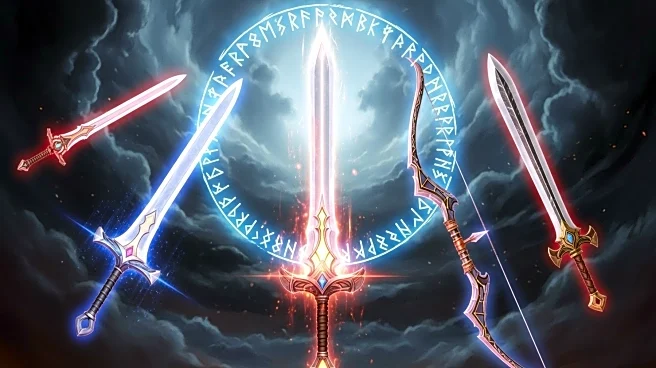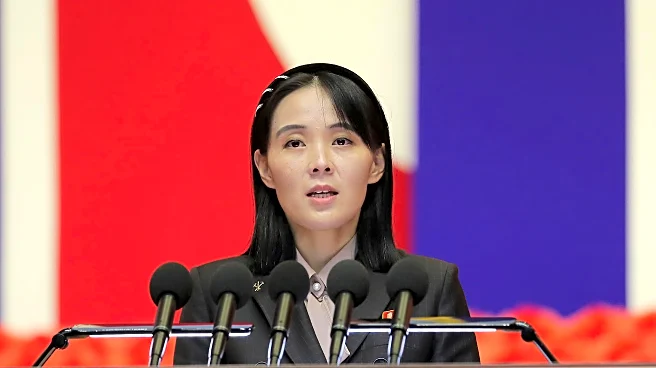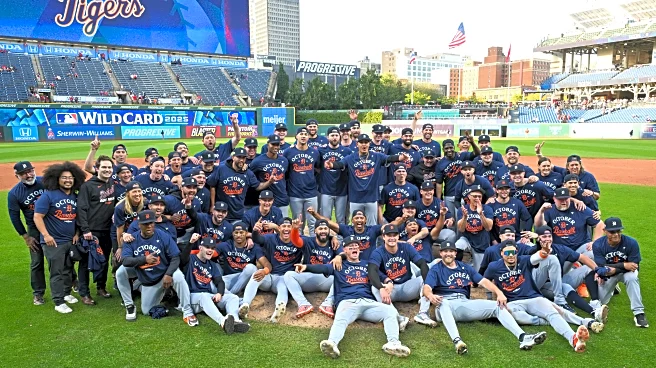What's Happening?
The directors of 'KPop Demon Hunters,' Maggie Kang and Chris Appelhans, have confirmed that the record-breaking Netflix musical will remain an animated film, dismissing the possibility of a live-action remake. The decision is based on the film's unique tone and comedic elements, which are best suited for animation. The directors emphasized the creative freedom animation provides, allowing characters to perform extraordinary feats that would be challenging in a live-action format. While there is no official announcement regarding a sequel, the directors expressed interest in exploring more stories within the 'KPop Demon Hunters' universe.
Why It's Important?
The decision to keep 'KPop Demon Hunters' as an animated film highlights the growing recognition of animation as a powerful storytelling medium. Animation allows for greater creative expression and can appeal to diverse audiences, making it a valuable asset in the entertainment industry. By rejecting a live-action adaptation, the directors preserve the film's original charm and artistic integrity, potentially influencing other filmmakers to prioritize animation for projects with similar thematic elements. This choice also reflects the industry's broader trend towards valuing animation for its unique capabilities.
What's Next?
As 'KPop Demon Hunters' continues to captivate audiences, the potential for a sequel remains a topic of interest. The directors' openness to further exploring the film's universe suggests that fans may eventually see new developments in the storyline. The success of the film could inspire other creators to invest in animated projects, recognizing the medium's ability to convey complex narratives and engage viewers. Additionally, the film's popularity may lead to merchandise and spin-offs, expanding its cultural impact.
Beyond the Headlines
The decision to maintain 'KPop Demon Hunters' as an animated film underscores the cultural significance of animation in representing diverse narratives and characters. Animation can transcend cultural barriers, offering universal appeal and fostering inclusivity. This choice reflects a broader movement within the entertainment industry to embrace diverse storytelling methods, challenging traditional formats and expanding the scope of creative expression.












